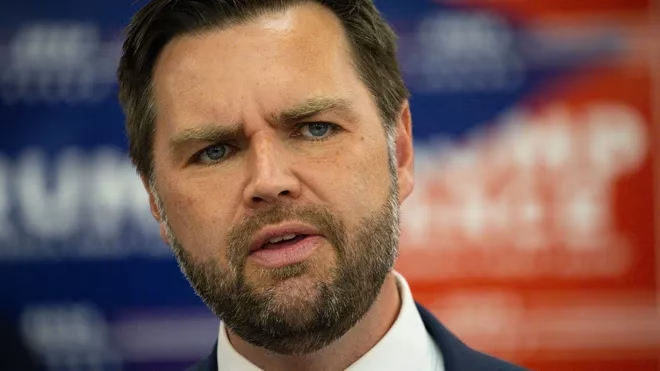In a recent statement that sparked significant backlash, Vice President JD Vance referred to Chinese people as “peasants,” a comment that quickly went viral and led to widespread criticism. This controversial remark comes at a time when China continues to make significant strides in technology, infrastructure, and economic development, raising questions about Vance’s understanding of the global landscape.
Vance, a Republican from Ohio, made the comment during a public appearance where he discussed U.S.-China relations. His words were perceived as both derogatory and outdated, especially given the rising technological and economic power of China. The nation has become a global leader in areas such as artificial intelligence, telecommunications, and space exploration, with companies like Huawei, Tencent, and BYD expanding their influence internationally.
The Technological Divide: China’s Advancements
China has made impressive advancements in technology, surpassing the United States in various fields. For example, China leads the world in 5G infrastructure, with nearly 70% of global 5G technology installed by Chinese companies. Meanwhile, China’s space program has also made tremendous progress, achieving milestones like the successful landing of a rover on Mars and the construction of its own space station.
In addition to these technological feats, China is leading the global charge in electric vehicles (EVs), with homegrown companies like BYD dominating the market. The nation is also a hub for advanced manufacturing, robotics, and clean energy, proving that its technological capabilities extend far beyond what some may perceive as antiquated.
The Fallout from Vance’s Remarks
Vance’s statement has received criticism not only from Chinese officials but also from American tech experts, economists, and international relations specialists. Critics argue that his comments reflect a lack of understanding of the global economic and technological landscape and may hinder future diplomatic relations between the U.S. and China.
In the age of interconnectedness, where technology and global markets shape international diplomacy, such divisive remarks do little to foster cooperation or understanding. Many are questioning whether such statements from a public figure like Vance are reflective of a broader, outdated view of China that underestimates its current standing as a global technological powerhouse.
A Call for Diplomacy and Understanding
As the geopolitical landscape continues to shift, it’s clear that the U.S. and China will have to navigate complex relationships involving trade, technology, and global influence. Diplomatic engagement and mutual understanding will be crucial for maintaining global stability. Leaders like JD Vance, who hold influential positions, need to be mindful of their rhetoric and consider the broader implications of their words.
In conclusion, JD Vance’s recent comment serves as a reminder that outdated views and inflammatory language can have far-reaching consequences, especially in the realm of international relations. With China’s continued rise in technological development, the future of U.S.-China relations depends on how both nations engage with each other moving forward.
















